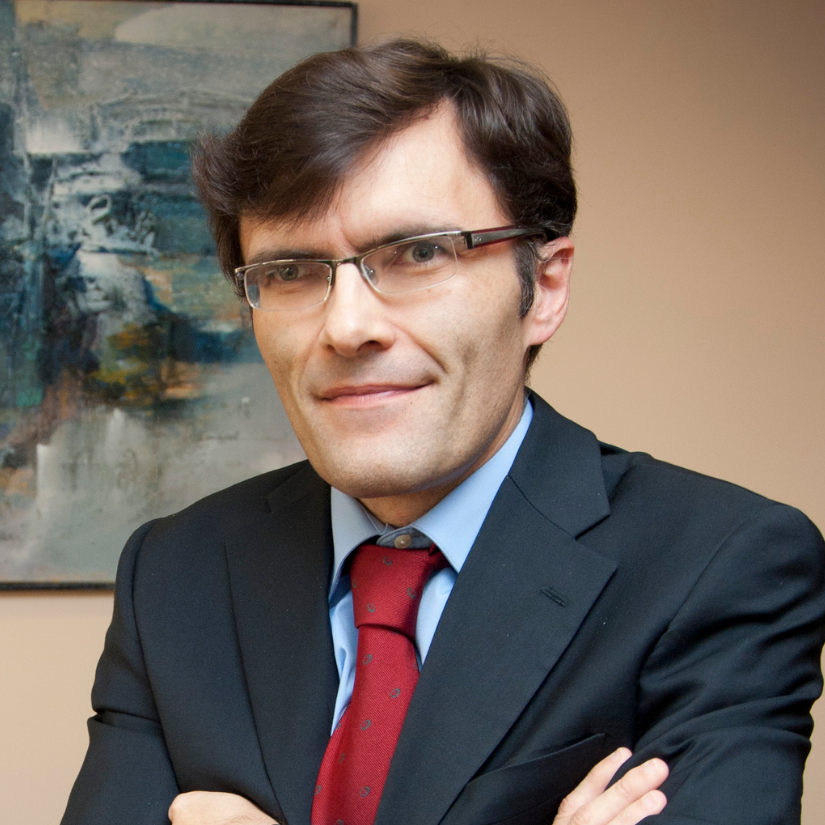For an inclusive Artificial Intelligence
By Alberto Durán
First Vice-President of the ONCE Social Group

Artificial Intelligence (AI) is aá is set to change the way in which organizations and individuals obtain and exchange information, relate to each other, produce, consume and create. We are already seeing some of the manifestations of this transformation, and we will become increasingly aware of its scope and impact.
As has been the case with every truly remarkable advance throughout history, the advent of AI generates mistrust, and it is not just a matter of time before it becomes a reality.á It is not without controversy, and we could safely say that it is accompanied by both light and darkness.éIt is not without controversy.
Among the lights and opportunities, it seems clear that AI will enable us to increase predictive capabilities and bring speed and agility to the way we do things, in companies and in our daily lives. This is going to improve productivity in many organizations and also improve the way we do things.éThis will improve productivity in many organizations and also globally, which is not insignificant. Among the shadows, the risks, there are the dilemmas éand the biases, hidden in the algorithms, that AI can help to perpetuate. Related to the latter, the regulation of AI, its governance, and the definition and use of ethical étic frameworks that frame its use emerge as some of the main challenges.
AI and Sustainability
From the perspective of Sustainability, the use of AI can help us accelerate the actions needed to achieve the goals we have set as a society, highlighting the 2030 Agenda and the SDGs. For example, it is expected to contribute to improve Sustainability and ESG data management (more and better data, and more efficient procurement processes), which is essential to measure and manage the social and environmental impact of organizations, and better control ESG and reputational risks throughout the value chain. In addition, an improvement in these areas is critical to theéIn addition, an improvement in these terms will have a positive impact on the company's social and environmental performance.á In addition, an improvement in these terms will have an impact on the growth of sustainable finance and investments, which integrate ESG considerations and must be enhanced to move steadily towards a more sustainable future.sustainable future.
However, we cannot ignore the direct environmental impact associated with energy consumption.éconsumption necessary to "training" and using Artificial Intelligence. Without going into this issue in depth, I think it is essential to mention it as a relevant aspect in the conversation on AI and Sustainability.
I do want to focus on the fact that the technology - alsoén AI - must be at the service of people. In organizations, we must analyze whaté impact it will haveá AI will have on our employees (will it produceá will it have an impact on our employees (will it produce a net increase or decrease in headcount?), on customers, on users and/or beneficiaries, on suppliers, on the communities in which we operate, and also on vulnerable groups. And reflect on whaté We must also reflect on what we can do to mitigate the negative and enhance the positive impacts of our actions. The centrality of the "S" of ESG aspects must also be emphasized.éWe must underline the centrality of the "S" of ESG aspects, also in our approach to the use of this new tool,
Risks and opportunities for the inclusion of people with disabilities.
Un use éIn the case of the ONCE Social Group, this consists of achieving equal opportunities and the normalization of the lives of blind people and people with other disabilities.
From the point of view of its application, AI can enhance innovation and improve accessibility in a broad sense for people with disabilities. For example, by developing systems that make it possible to interact with devices and technologies and to do this more effectively, which will undoubtedlyThis can undoubtedly improve the lives of people with disabilities in a wide range of areas.This can undoubtedly improve the lives of people with disabilities in areas such as access to employment, the provision of social services, accessibility to the workplace, education, training and learning, health, travel, and access to leisure, among others.
But to do so, we must ensure that this new technology, like other technologies, can be be useds by all people, i.e., that it is accessible. A recent report by the Royal Board on Disability reveals, after surveying 864 people with disabilities (a representative sample by type of disability, gender and age), that the new technology can be used by everyone, i.e. that it is accessible.éAlthough 99.8% are aware of products or gadgets equipped with Artificial Intelligence, only 12.3% use them, and there is no doubt that barriers of all kinds may be behind this data.
Likewise, given that the lack of availability of disaggregated data and statistics on the reality of people with disabilities is a basic problem for disability organizations as well as for public authorities, the fact that AI relies on large-scale data and information processing may lead to under-representation - and thus to new discrimination - in the disability sector. discriminations with disabilities in decisions and actions based on the use of AI. And we will be facing a vicious cAnd we will be facing a vicious circle: to the extent that AI-based technologies do not work on sources that adequately reflect the reality of people with disabilities, and their use is not accessible, new data cannot be collected for the training of algorithms and systems and disability will once again be excluded.
The rights of persons with disabilities and other vulnerable groups cannot therefore find in AI an additional obstacle to the development of a new AI system.to be effective rights. rights. Artificial Intelligence must be an effective and ethical element of inclusion, and not a bastion of exclusion.exclusion. And this issue must be part of the sustainability agenda of public authorities, companies and organizations, within their respective dimensions. dimensionósocial dimensionand an action framed by justice, equity and the principle of leaving no one behind.s.
The ONCE Social Group would like to sincerely thank Forética and Microsoft for the creation and promotion of this space for reflection on AI, because that is precisely what should occupy us now, reflection, sharing, inclusive design, exchange of ideas, points of view and knowledge in relation to this new engine of economic and social transformation.

Alberto Durán, first vice-president of the ONCE Social Group
Born in El Ferrol (La Coruña) in 1969. Graduated in Law from the University of Navarra (Pamplona, 1994), Master in Economics and Business Administration from the Instituto de Estudios Superiores de la Empresa (IESE 1996, Barcelona); Senior Management Program from IESE (PADE 2008 Madrid) and Expert in National Defense from the Centro Superior de Estudios de la Defensa Nacional (CESEDEN XXXII promotion).
He is currently First Vice President for Institutional Coordination, Solidarity and External Relations of the ONCE General Council, Executive Vice President of Fundación ONCE, Vice President of ILUNION (ONCE's social enterprises group) and President of Fundación ONCE para América Latina (FOAL).
He is also 1st Vice President of the Spanish Association of Foundations, Secretary General of the Spanish Committee of Representatives of People with Disabilities (CERMI) and 1st Vice President of the Spanish Paralympic Committee.
He has been Chairman of the Excellence in Management Club, Chairman of Forética and member of the European Commission's Expert Group on Social Responsibility.

